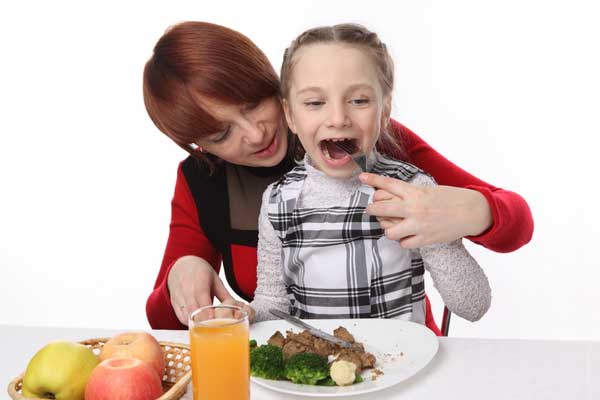How to Feed a Sick Baby?
Our babies sometimes get sick, and for a speedy recovery they need proper nutrition as well as proper treatment of the disease. All parents know it, but they often have problems with feeding – babies either refuse to eat at all or demand everything except what they are prescribed and what is useful.

In addition, staying in bed or in the hospital causes certain limitations to the process of eating. Eating becomes a little different than usual. How can one feed a sick child?
Physiological Aspect of an Ill Child’s Body
When children are sick with acute infections – it is unpleasant. In addition, the most simple and natural desire for a child in the early hours of acute illness is rejection of food, even the most favorite food.
Refusal to eat is a normal reaction, since it is caused by biological programs of the body and is manifested as a symptom of almost any disease, even in adults. It is just that we know how to make an effort and eat a meal “because it is necessary.” Children do not understand this and refuse to eat. However, parents see refusal to eat as something illogical because one needs strength to fight the disease.
Stress is at the heart of all the manifestations of acute illness: painful reactions, the formation of fever, lack of oxygen in the tissues. This leads to the usual reaction of the people’s body – the brain activates blood circulation in the most important organs that help to cope with the disease: brain and spinal cord, heart, lungs and kidneys.
Blood flow is minimized in all other organs during the period of recovering from the disease. This is especially true of the digestive system – the intestines and the stomach. At the same time, peristalsis slows down, the production of juices and enzymes is reduced, they become thicker, and it makes digesting food very difficult.
Due to viral infections, children often suffer from the so-called “gastrointestinal syndrome” with soft feces, abdominal pain and winds – it also explains the lack of appetite and categorical refusal to eat.
It is proved that intensity of the intestinal syndrome and the frequency of its occurrence are directly related to the parents’ activity in feeding the baby: digestive disorders develop because the body cannot digest the increased amount of food.
How Does Liver Affect the Appetite?
Liver plays a major role in the child’s body. First of all, it is involved in food digestion and the digestion of fat. In addition, it is actively involved in fighting infections. The synthesis of antibodies and interferon takes place in the liver. They are involved in the neutralization of viruses and germs, remove toxins and waste products of these microorganisms, and improve overall immunity.
During acute infections and diseases, the burden on liver will increase manifold, and loss of appetite is one of the defense mechanisms of the liver from overload. The liver is focusing on more important functions than digestion.
Therefore, there is no need to panic in case of the child’s failure to eat. The nutrient reserves will be enough for the acute phase of the disease, and the weight that is lost during the illness will be quickly recovered later. The appetite gets back to norm as the microbial activity decreases and the child recovers.
How to Feed a Kid during Illness?
Knowing the characteristics of the child’s body reaction to infection will help to feed the baby correctly, judging by the appetite: it is all right if the child eats two or three spoonfuls of food, and if the child does not want to eat, let him/her drink more. An attempt to feed the baby by force is completely unacceptable: it will only have a negative effect and may trigger vomiting and further psychogenic refusal to eat.
Dehydration is much more dangerous to a sick child than malnutrition.
Don’t Give Sweets to an Ill Kid
Give up the habit of treating the sick child with harmful sweets: cakes, candies, chips, soda. These products will strain the pancreas and can cause its disorder, which results in abdominal pain and diarrhea.
Feed your child more often, little by little, even a few spoonfuls of soup or porridge will be very helpful.
When Eating Is Painful
Sometimes, problems in the mouth area or neighboring areas (ears, nose) make the child refuse to eat. He/she suffers from pain caused by stomatitis and can hardly swallow because of a sore throat or otitis. Relieve pain in the mucous membrane before eating or drip medicine into the ears or nose.
Do not force the child to hurry up, give him an opportunity to thoroughly chew everything and gently swallow everything without causing discomfort.
If a baby is sick, change the baby’s dummy for a softer one with a smaller flow. The baby should not choke and hurt the sore spots in the mouth with the dummy.
Recovering from Illness
While recovering, the child’s appetite comes back, and he/she will eat better. In the early days of recovery and return to the usual diet, make sure that the portions are a third smaller and the kid does not overeat. Digestion cannot handle the large portion of food.
